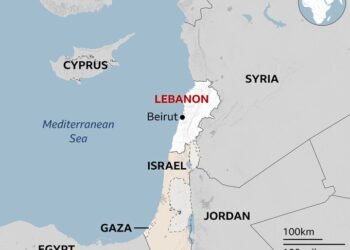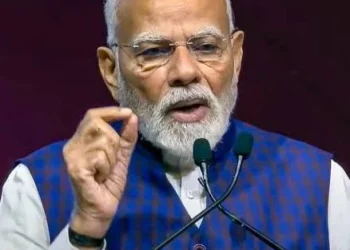Days after a similar demonstration caused chaos, farmers from Punjab and Haryana are set to march to Parliament. With demands ranging from MSP guarantees to farm debt waivers, the protest is expected to bring heavy traffic and heightened security measures to the capital.
By PC bureau
Delhi is set to witness another wave of traffic disruptions as protesting farmers prepare to march from the Shambhu border to the Parliament building on Thursday. The “Dilli Chalo” march, organized by the Samyukta Kisan Morcha (Non-Political), comes just days after a similar protest by farmers from Uttar Pradesh caused significant traffic snarls.
Prohibitory orders banning large gatherings were imposed in Haryana’s Ambala district on Wednesday evening. The orders, which restrict the assembly of four or more people, effectively bar processions on foot, vehicles, or other modes. To ensure law and order, central paramilitary forces have been deployed along the Haryana side of the border, supported by multi-layer barricades. Senior police officers have reached the area to assess the security situation.
The march, scheduled to begin at 1 PM, is part of a larger movement to press for long-standing demands, including a legal guarantee for the Minimum Support Price (MSP) of crops, farm debt waivers, pensions for farmers and laborers, withdrawal of police cases, and justice for victims of the 2021 Lakhimpur Kheri violence.
Farmers have been camping at the Shambhu and Khanauri border points between Punjab and Haryana since February 13, when their earlier attempt to march to Delhi was halted by security forces. The protests have gained renewed attention following a clash on February 21 at the Khanauri border, where a farmer from Punjab, Shubhkaran Singh, died. The clash occurred as protesters attempted to breach barricades, prompting security forces to use tear gas to disperse the crowd.
The Supreme Court weighed in on the issue earlier this week, underscoring the importance of balancing the right to peaceful protest with the need to avoid public inconvenience. “In a democratic setup, peaceful protests are permissible, but they must not obstruct highways or disrupt public life,” observed a bench comprising Justices Surya Kant and Ujjal Bhuyan. The court also highlighted the critical role of the Khanauri border as a lifeline for Punjab.
This marks the second major protest march of the week. On Monday, farmers from Uttar Pradesh attempting to march to Parliament were stopped in Noida, causing hours-long traffic snarls on both sides of the border.
As tensions rise, Delhi residents brace for possible disruptions, while authorities remain on high alert to manage the unfolding situation.














